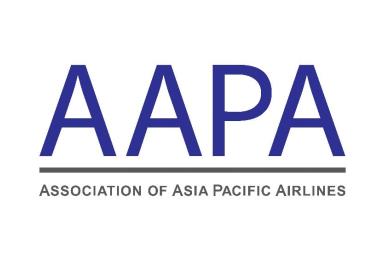KUALA LUMPUR, 15 September 2021: The Association of Asia Pacific Airlines (AAPA) targets net-zero emissions by 2050 that exceeds the existing industry commitment to halve carbon emissions by the same deadline.
AAPA says it fully embraces the aviation industry’s climate change commitments to date, with it being a leader amongst global sectors in establishing a comprehensive sustainability agenda. This includes 1.5% fuel efficiency improvement, stabilising net CO2 emissions through carbon-neutral growth, as well as a new, more ambitious long-term goal of net-zero carbon emissions by 2050.

Noting that the cooperation of multiple stakeholders including governments, air navigation services, fuel suppliers, airports, aircraft and engine manufacturers would be essential to the successful achievement of the net-zero emissions goal, AAPA stressed that the industry’s pathway to this ambitious target is an all-industry effort based on a combination of technology, operational improvements, sustainable aviation fuels (SAF), and a global market-based measure, namely the ICAO Carbon Offsetting and Reduction Scheme for International Aviation (CORSIA).
Sustainable aviation fuels are expected to feature heavily in the industry’s overall reduction in carbon emissions by almost completely replacing fossil fuels on commercial flights by 2050. Support from governments and other stakeholders to commercialise SAF through research & development, subsidies, incentives, as well as the allocation of resources for its development and distribution will be crucial to ensure adequate and cost-effective supplies to meet the needs of the airline industry. Significant quantities of SAF will be needed by the industry as 80% of emissions are from flights over 1500 km, for which aircraft powered by alternative energy sources, such as electricity and hydrogen, are not available.
Underscoring the task that lies ahead, AAPA director general Subhas Menon said: “The Asia Pacific region will constitute some 40% of global SAF demand, but production and supply facilities in the region are lacking. Allocation of sufficient resources to convert feedstock, like municipal or agricultural waste, waste oils from food production and other biomass for the production of SAF will make a critical difference.”
On the market–based measures, Menon elaborated: “CORSIA has an integral part to play in achieving this ambitious long term commitment. It is the agreed global mechanism for offsetting growth in international aviation CO2 emissions since 2020. AAPA wholly supports ICAO’s efforts on this front and will continue to encourage States to participate in the scheme fully. In addition, investment in emerging sources of energy such as direct carbon capture and carbon sequestration when these become viable could complement the industry’s efforts towards achieving net-zero emissions.”
Menon explained: “Sustainability is a global challenge that calls for a global solution. Together, we need to ensure that distribution of the burden of reducing carbon emissions is fair and equitable while allowing the industry to recover and restart.”
Turning to air travel recovery, AAPA noted that the Asia Pacific was the first region to be heavily impacted by Covid-19, but has now lagged behind other regions in showing improvement in travel demand. While other regions are easing restrictions on the back of successful vaccination roll-outs, borders in Asia still remain largely closed due to low vaccination levels.
Greater collaboration amongst governments to streamline border measures and address vaccine inequity is critical in speeding up air travel recovery. Governments need to agree on an objective basis for the easing of border restrictions for quarantine-free travel, in line with WHO and ICAO guidelines.
One possible approach could be a progressive framework based on government-determined thresholds of vaccination levels domestically to ease travel restrictions and quarantine requirements gradually. Such a framework would encompass bilateral travel lanes that allow for the reciprocal movements of primarily vaccinated travellers between places of similar risk levels, with the ultimate goal of allowing quarantine-free travel for a wide range of persons.
In closing, Menon said: “AAPA reaffirms its strong support for ICAO and its member states to forge a global consensus on a collaborative pathway to address aviation emissions in the longer term. A comprehensive approach involving multiple stakeholders to deliver emissions reductions is key to resilient and sustainable aviation industry. In parallel, a common objective framework to gradually reopen borders will set the industry on the path to much-needed recovery. Aviation is a key contributor to the social and economic well-being of the Asia Pacific region and continues to play a vital role in facilitating the transportation of much-needed supplies across the region during the current pandemic.”






